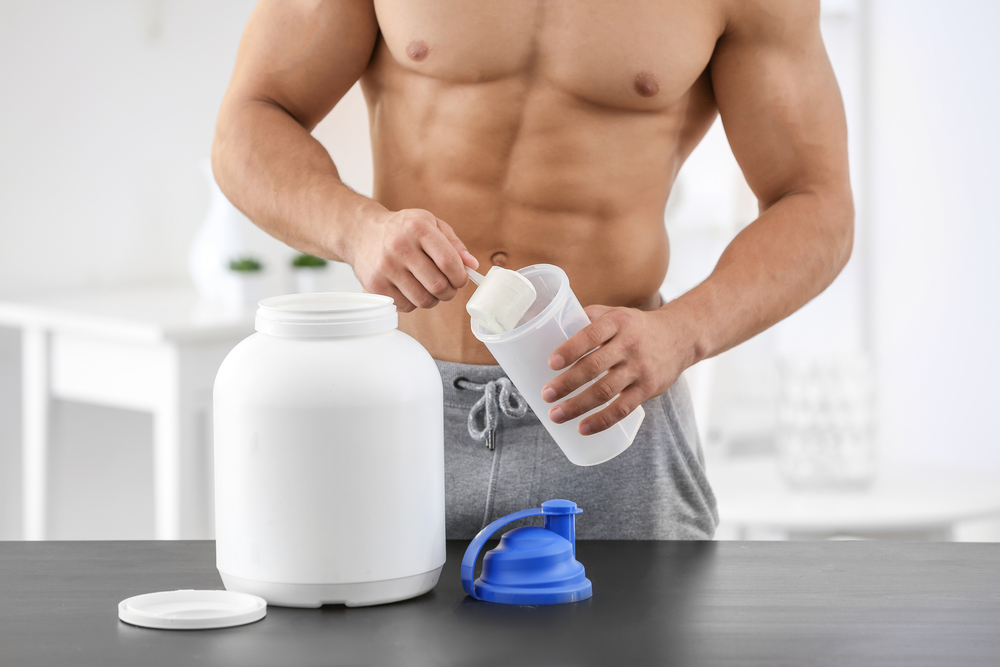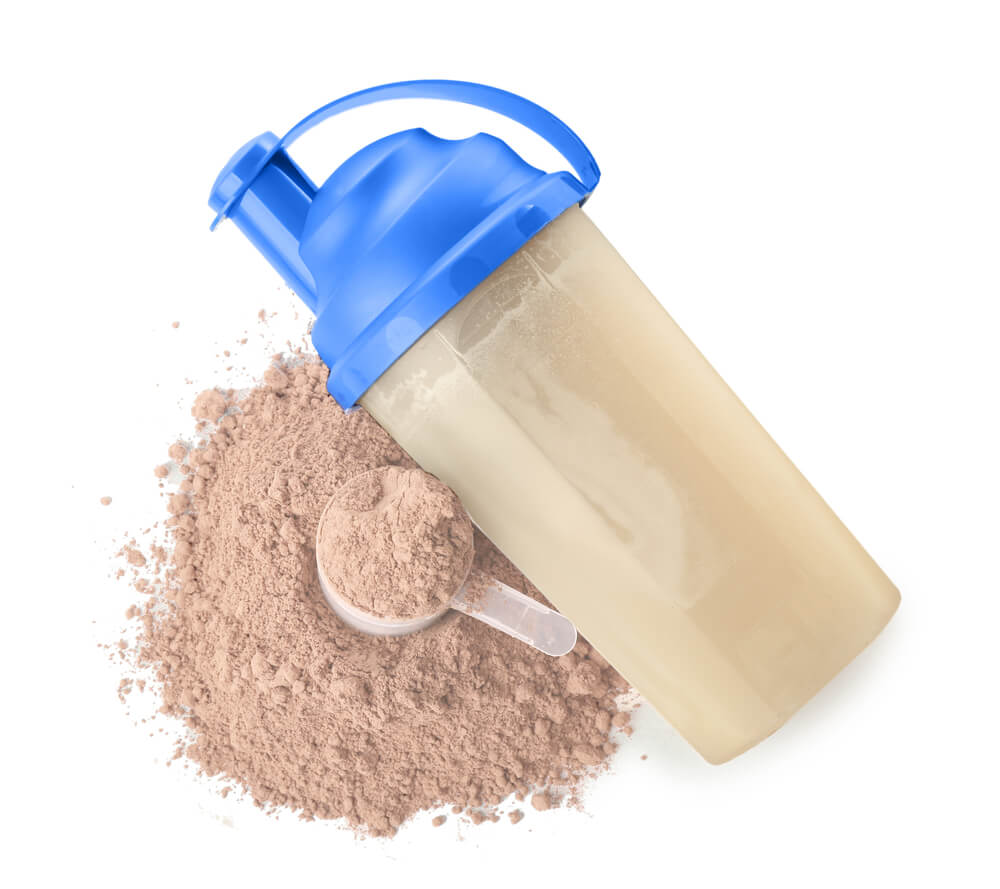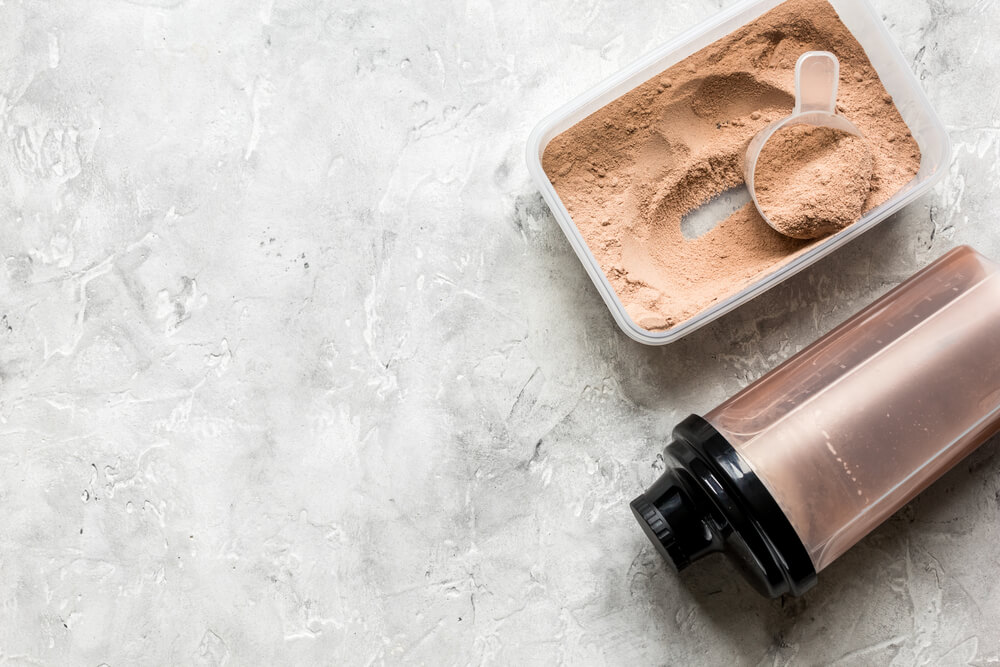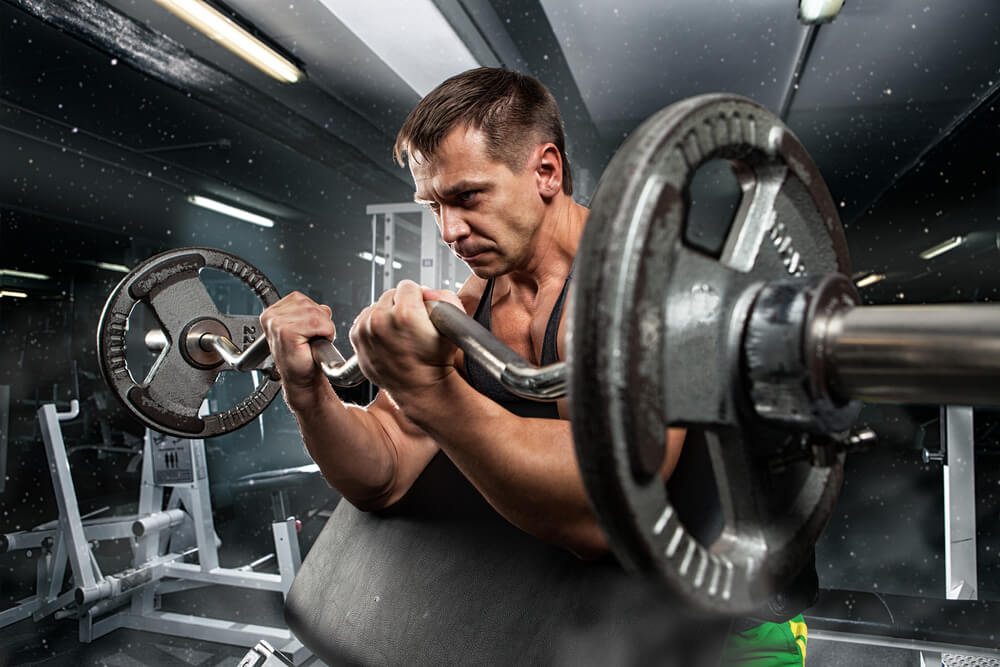
Of the nutrition world’s many essential ingredients, none come close to the awesome muscle-building potential of protein. It’s often considered the apex of three vital macronutrients—carbohydrates and fats being the other two.
Protein is found everywhere, it seems. Paradoxically, though, it’s one of the most difficult ingredients to consume properly for muscle-building potential. Our cells rely on protein for hypertrophy, but they need quite a lot of it! To push your muscle cells to heal, grow and become conditioned to exercise, you’ll need to pack on much more protein than the average diet provides.
The process of turning protein into muscle is called protein synthesis. Bodybuilders, powerlifters, runners, swimmers and plenty of other sports-lovers rely on this process, time and time again, to make their bodies stronger, leaner and healthier. Even after they’ve completed aerobic and anaerobic exercises, they need to “refuel” to make their bodies better than they were before.
Whether you’re a gym newcomer, an intermediate or an advanced lifter, you’ll probably find yourself needing more of this “fuel” than your diet provides. Plenty of exercisers turn to supplements for this reason—and they stick to them like glue to make sure they’re getting the most out of their training.
Let’s talk about protein powder, which is a supplement that has plenty of protein packed into an easily consumed form. If you want to maximize your muscle gains, you’ll absolutely need it.
The Good Stuff: Condensed Macronutrients
You can change your body in astounding ways—but you’ll need to kick it into gear before it’ll budge. This is because your body loves equilibrium. It likes to avoid change if it can avoid it—unless, of course, its environment changes. If it encounters exercise, it’ll try to adapt.
Normally, this adaptation involves muscle growth—but muscle growth, itself, can be pretty slow if the above-mentioned “fuel system” isn’t forced to adapt, too.
So, how much protein is needed to jump-start big muscle gains? An Applied Physiology, Nutrition, and Metabolism study suggests getting about .6 protein grams, every day, per pound of bodyweight. Now, that said, you’ll need about one gram of protein, per bodyweight pound, to promote muscle growth if you lift weights.
So, if you weight 150 pounds—and if you want to get more muscle—you’ll need to consume a whopping 150 grams of protein.
It’s tough to pack in this amount of protein, relying on food alone. Most people only eat 60 percent of growth-promising protein every day. Even worse: They eat most of it during dinner. Your body doesn’t store protein for very long, so nighttime protein can vanish before daytime—leaving your muscle-building fuel tanks running on empty.
The best time to consume protein, experts suggest, is before breakfast, between meals and just after your workout. Between work, daily chores and school, the protein equation gets even tougher to solve.
As such, protein shakes really are the best way to pack on muscle pounds. They have plenty of protein, they’re easy to take with you and they’re easily consumed at a moment’s notice.
Picking the Best Protein Powder for Muscle Gain
Protein powders might seem like tasty shakes, but they’re as effective as meal-based proteins. You have several protein powder options to choose from, too! To maximize your success, though, you’ll need to pick a powder that corresponds to your goals.
While some protein powders are a little better at building big muscles, others are a little better for nurturing lean gains. Fortunately, each type of protein powder is useful for building muscle in general.
Let’s check out the best protein powders for muscle gain.
Whey Protein
Whey Protein tends to be the go-to protein powder type, as it contains all nine essential amino acids—which, when combined, provide the most muscle growth. Low in lactose, whey protein is gentle on the digestive track—so your body, likely, won’t have too much difficulty absorbing it for use.
Whey is found in milk, alongside casein protein. Once separated from the milk’s casein, whey packs a potent mixture of alpha lactalbumin, beta-lactoglobulin, immunoglobins and bovine serum albumin. Not only does whey build muscle, but it also aids in weight loss. Whey protein powder is also absorbed quicker than other protein powders, making it an excellent post-workout muscle builder.
It can even be used to lower cholesterol, having been verified by The British Journal of Nutrition to lower total cholesterol—and LDL cholesterol—after 12 weeks in overweight men. Also effective as a blood pressure reducer, reports International Dairy Journal, whey protein is especially effective if you’re concerned about heart health.
Whey protein is available in three types: whey protein isolate, whey protein concentrate and whey protein hydrolysate. While whey isolate is about 90 percent protein, whey concentrate contains about 30 to 90 percent protein.
This said, whey concentrate has much lower carbohydrates and fat—which might be a better choice if you’d like to get slimmer. Whey hydrolysate, meanwhile, is the “predigested” form of whey—which makes it the best protein powder for muscle gain if you do encounter digestion issues.
Soy Protein
Like whey protein, soy protein is also considered to be a “full” protein. This said, it doesn’t contain all of the amino acids required for optimal muscle growth. It’s one of the most popular plant-based protein powders available, however, often making it the go-to protein powder for those avoiding animal-based products.
Soy protein is derived from defatted soybean flakes. These flakes have had their dietary fiber and sugars removed, and they also have no cholesterol. Per 28 grams of soy protein, you’ll get about 23 grams of protein itself. At only 93 calories per this 28-gram serving size, a soy protein drink is an excellent choice if you’re trying to lower your total caloric intake.
It’s important to mention, however, that soy protein has phytates—so it might lower your stomach’s mineral absorption. It may not be the best protein choice for building muscle, but it’s certainly the best protein powder for muscle gain if you’re dedicated to a vegan diet.
Casein Protein
Casein protein is a dairy protein which slowly releases amino acids. Because it’s slowly digested, it’s a popular pick for those who prefer to have their protein drink before sleep. It’s effective for reducing muscle breakdown during those sleeping acids, also making it a great choice for injury and sickness recovery.
While milk contains about 20 percent whey protein, its other 80 percent is made from casein protein. It’s a complete protein source, packing every essential amino acid, and exists in two different forms: micellar casein, which is the standard slow-digestion form, and casein hydrolysate—which absorbs a little quicker.
What makes casein protein great is that it’s suspected to contain a slew of other vital nutrients—like calcium. We consider casein protein to be the second best option for big muscle gains, just behind whey protein. While casein protein is burned for fuel over roughly seven hours, your body will have a higher net protein balance—which is important for muscle growth.
Whey-Casein Protein Blend
Up next, we have the whey-casein protein blend. As the name suggests, this protein powder mixes whey and casein protein. The mixture offers the perfect combination of fast-digesting and slow-digesting protein, as a result. If you need the benefit of a post-workout protein spike, this powder has you covered. If you need slow-digesting protein to prevent muscle breakdown, you’re also in luck.
A U.S. National Library of Medicine National Institutes of Health study determined that a whey-casein blend is just as effective as whey protein—which has been determined to be the best protein for muscle mass growth.
At the same time, casein protein’s slow-absorption qualities also remained true: Those consuming a whey-casein blend will have higher casein protein levels in their body throughout the day. Because of this, whey-casein succeeds in nurturing passive muscle growth as one of the best protein powders for muscle gain.
While whey-casein seems to offer the best of both worlds, with regards to muscle building, it can be tough to pick a whey-casein blend which meets your protein “split” needs. While some whey-casein blends might offer 75 percent whey, and 25 percent casein, others may deviate from this split.
If you’re going to pick a whey-casein blend, it’s a good idea to read the fine print to assure you’re getting the mix your body needs.
Rice Protein
Rice protein powder has fewer essential amino acids than most of the other protein powders, but it’s still effective as a hypertrophy and strength supplement. This type of protein is extracted by alkaline—containing a mix of 13 kDA prolamin and 23 kDA glutelin. Both of these ingredients reduce liver and blood plasma cholesterol, also suppressing fatty acid synthesis.
While rice protein might not be as effective as the above alternatives for building muscle, it’s still useful for lean muscle growth. Rice protein’s best feature, for many, is its use as a brown rice alternative. While brown rice includes a number of weight-reducing peptides, it doesn’t have all nine amino acids the body needs for optimal muscle growth. Rice protein powder, however, often includes chia or quinoa proteins to assure a complete amino acid source.
Pea Protein
Finally, we have pea protein—which contains all nine essential amino acids. Milk proteins have a better amino acid profile for muscle growth, though pea protein is a good choice for those who’re restricting lactose from their diet.
Pea protein powder is considered to be one of the most effective plant-based protein alternatives, too, resulting in similar muscle growth benefits as whey protein. Because pea protein powder is flexible in its composition, it’s easier to find “pure” pea protein powders with varying carb and protein ratios.
Each of these protein powders can be an excellent tool for building muscle, but it’s a good idea to consider them independently to get the most benefits.
Conlusion
Your training regimen matters too, of course, so make sure the powder you pick complements your exercise. Before long, you’ll see plenty of muscle growth, more strength and more endurance.
-Terry Asher
Terry Asher
Latest posts by Terry Asher (see all)
- Better Family – Product Review Liquid Daily 2 oz - Dec 16, 2024
- Post-Workout Recovery: The Key to Optimal Performance - Nov 25, 2024
- Pre-Workout Supplements – Everything You Need To Know - Nov 18, 2024













[…] post The Best Protein Powder for Muscle Gain appeared first on Gym […]
[…] Read The Entire Article By Terry Asher Here. […]
[…] Gymjunkies.com · by Terry Asher · October 8, 2019 […]
[…] or if you want to build muscle mass. As men have naturally larger muscles their bodies require more protein to rebuild damaged muscle mass after a workout, so avoid following the diet recommendations for a […]
[…] at all be comfortable. So instead you need something with protein but is easily digestible. A protein powder is good for […]
[…] you will want to maximize your protein. It is still important to maintain as much muscle mass as you can, which means you’ll need to […]
[…] at all be comfortable. So instead you need something with protein but is easily digestible. A protein powder is good for […]
Rs.